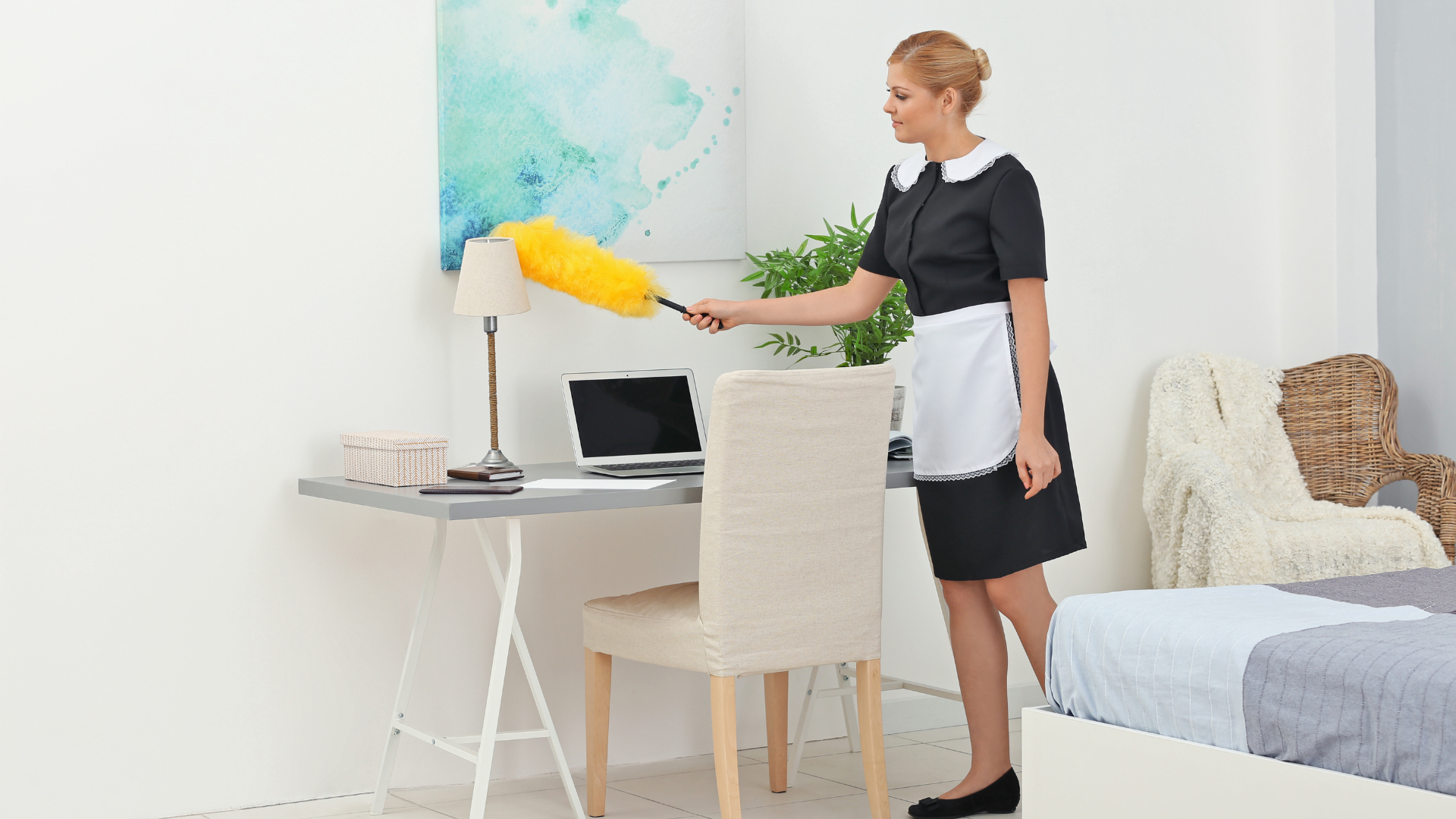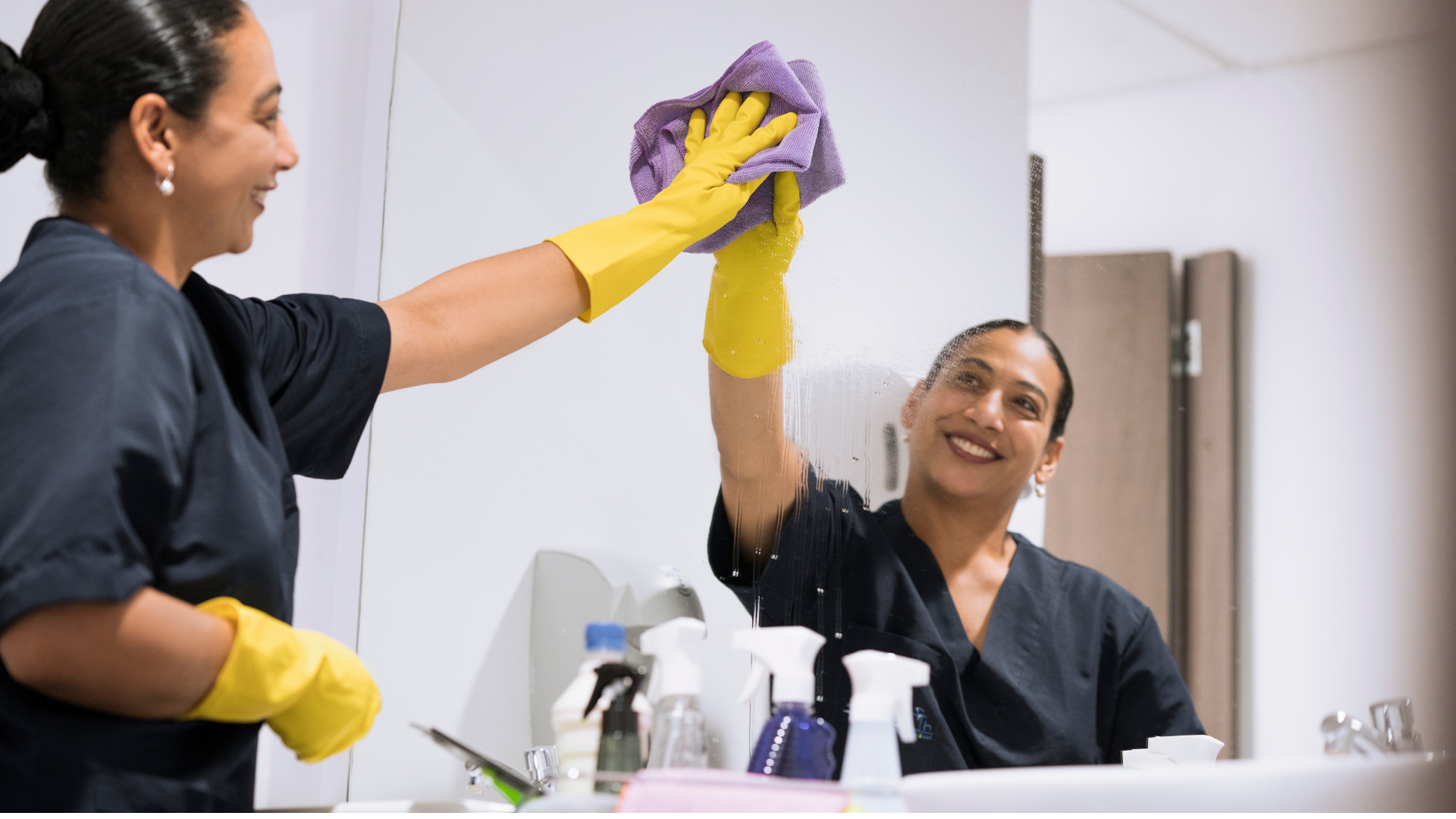Housekeeping and Other Departments
Irrespective of a hotel's classification or the guest's category, hotels primarily operate within the service industry, aiming to exceed guests' expectations.
Therefore, it's crucial for all hotel staff to work harmoniously as a team to deliver exceptional services that foster guest loyalty.
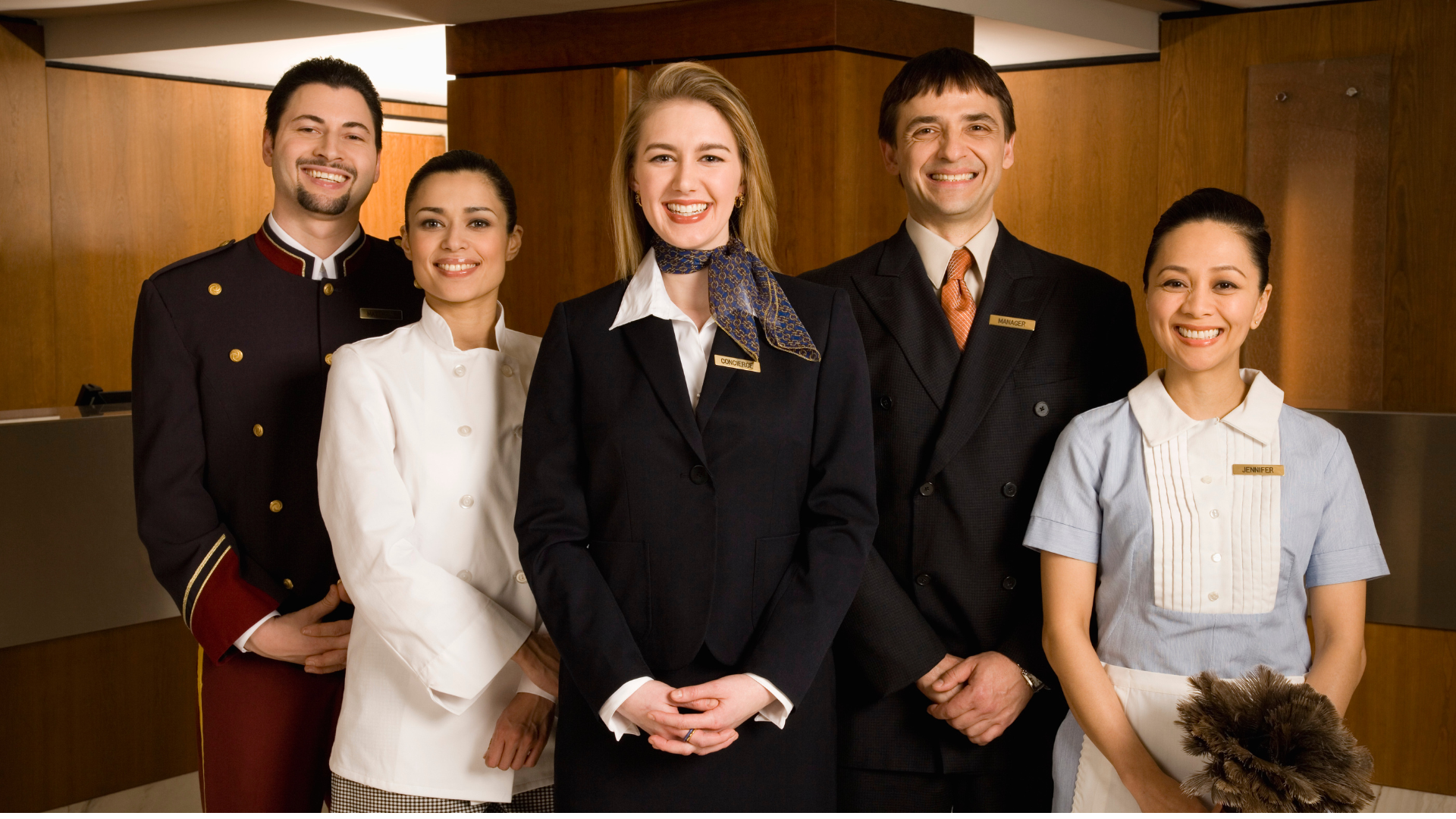
For Example
Effective collaboration between the housekeeping and front office departments is paramount to ensure that guest rooms are cleaned and prepared for new arrivals. Failure to provide clean rooms promptly, particularly during peak seasons, can lead to lost sales and guests.
The housekeeping department shoulders the responsibility of maintaining the facility's cleanliness and appearance, including the guest rooms, public areas, office spaces, and back-of-house areas. This ensures the property remains attractive and fresh, much like its opening day.
Housekeeping Relationships
The following are brief descriptions of the relationships of the housekeeping department with other hotel departments:
Front Office
The primary focus for both departments is the management of guest rooms. Effective communication regarding room status is essential to ensure that check-out rooms are promptly prepared for occupancy. Moreover, low occupancy periods present opportunities for repairs, maintenance, and renovations.
Furthermore, the housekeeping department should promptly report any atypical guest behavior that could potentially result in loss of revenue or a negative image for the hotel to the front office.
Engineering
The housekeeping staff has a crucial role in ensuring that minor repairs are promptly requested from the engineering department to prevent more significant malfunctions. By working in collaboration, they can effectively execute preventive maintenance and renovations with minimal impact on guests.
Moreover, the engineering department expects the housekeeping staff to conserve heat, water, and electricity in their daily operations.
Security
The security team is responsible for safeguarding the hotel's premises by conducting regular patrols, monitoring surveillance equipment, and ensuring the safety of guests, visitors, and employees.
Moreover, housekeeping staff, who work across all areas of the hotel, can contribute significantly to the hotel's security measures. For instance, while cleaning guest rooms, attendants can help secure the doors and windows to enhance the safety of the guests.
Human Resources
The relationship between the human resources department and the housekeeping department is similar to the one previously mentioned with the front office department.
Food and Beverage
A symbiotic relationship exists between the housekeeping and food and beverage departments, primarily centered around the provision of table linen and uniforms. It's crucial that the banquet department keep housekeeping informed of its requirements as the volume of business may fluctuate significantly.
Furthermore, maintaining a strong relationship between housekeeping and room service is vital to facilitate prompt and efficient housekeeping services.
Sales/Marketing
The sales and marketing department is significantly dependent on the housekeeping department to ensure timely delivery of goods and services as committed to our guests. Large hotels often encounter issues with consecutive conventions and groups, which can pose challenges for the front office, sales and marketing, and housekeeping. It is imperative that all three departments work in tandem to guarantee that guest rooms are prepared and maintained to the highest standards, especially during these busy periods.
Purchasing
The purchasing department buys all cleaning and guest supplies. Its relationship with the housekeeping department is self-evident.
When it comes to deciding what brand, quality, or size should be stocked - whether the item is cleaning powder or mattresses - the executive housekeeper and the purchasing agent must pool their knowledge to consider the cost and availability of the products.
Accounts
The accounting division is under the purview of the hotel’s controller, responsible for overseeing the financial operations of the establishment. Concurrently, the executive housekeeper must collaborate with the storeroom manager to maintain inventory control of cleaning supplies, equipment, linen, uniforms, and guest amenities. The storeroom manager falls under the supervision of the hotel's controller.
Cleaning Tasks
The primary responsibility of the housekeeping department is to ensure the cleanliness of a hotel property. Cleaning tasks are typically categorized into two distinct areas:
Room Cleaning
Public Area Cleaning
Room Cleaning
Room cleaning entails the meticulous cleaning of all guest rooms in a hotel property. It's the responsibility of room attendants to adhere to the appropriate protocols of room cleaning to guarantee guests are provided with suitable accommodations during their stay.
Room attendants must ensure that the rooms are not only clean but also tidy and comfortable.
Briefing
Typically, hotel room attendants are scheduled to work the morning shift, given that check-outs typically occur before noon. Prior to the commencement of their duties, attendants are required to attend a morning briefing conducted by either the executive housekeeper or supervisor. During this meeting, issues regarding conduct or work procedures, as well as any complaints, are addressed. The briefing also serves to provide critical information and direction to room attendants, such as:
The number of rooms that require cleaning for the day.
Whether any large groups or tours will arrive early and request rooms.
Any special cleaning requests, such as setting up extra beds before guest arrivals.
Cleaning Times
During the briefing, room attendants will receive room assignment sheets and room key cards. The number of rooms each attendant will clean ranges from 10 to 15, accounting for variations in room sizes, grades, complexity of settings (including provided supplies and amenities), and the requisite level of cleaning as determined by the hotel.
Standard check-out rooms necessitate roughly 30 minutes of cleaning time, while occupied rooms require less time. Supervisors should consider this when assigning tasks to ensure all attendants receive a fair workload.
Cleaning Preparation

Room attendants must complete preparatory tasks before proceeding with their cleaning duties. These include ensuring their maid cart is well-stocked with linens and guest supplies required for the day's workload.
In addition, the cleaning order of the rooms should follow a logical sequence:
Rooms occupied with service requests
Rooms blocked for arrivals
Check-out rooms
Occupied rooms
Cleaning Procedure
The protocols for cleaning guest rooms are relatively uniform across hotels. To ensure proper execution, inexperienced room attendants undergo training to familiarize themselves with the techniques and procedures involved.
Outlined below are the primary steps undertaken by room attendants when cleaning guest rooms:
1. Enter the guest room.
Knock on the door and announce housekeeping before entering.
2. Check and open up the room.
Open curtains, and check amenities. Make sure no personal belongings are left in check-out rooms.
3. Make the bed.
Replace dirty linen with clean fresh linen.
4.Clean up the trash and dust the room.
Collect the trash and empty ashtrays if there are any.
5.Clean the bathroom.
Clean and disinfect the bathroom, replace towels, and refill guest supplies.
6.Vacuuming.
Vacuum from the inside to the outer side of the room.
7. Final check and return room to inventory.
Check all items are inside the room before leaving. Return room to inventory and update the room assignment sheet.
Public Area Cleaning
Public areas within the hotel encompass both front-of-house and back-of-house spaces. Typically, floor plans are segregated into sections to facilitate the assignment of duties to public area attendants or cleaners.
The frequency and scheduling of cleaning activities depend chiefly on the level of foot traffic, as well as the safety and convenience of both patrons and staff.
Cleaning Example
Reducing Disturbances for Hotel Guests
To prevent interrupting hotel guests, it's recommended to conduct thorough lobby cleaning during the overnight shift when traffic is low. Daytime cleaning should be limited to minor and routine tasks, which can be performed by public area attendants.
Other
It's essential to acknowledge that certain areas, including restaurants, kitchens, and banquet rooms, are maintained by their respective waiters, waitresses, chefs, and banquet servers. Each departmental staff member is responsible for ensuring an immaculate and safe environment for guests and colleagues.
In particular, Housekeeping may provide supplemental support in conducting deep cleaning during off-peak hours as needed.
In-room Guest Supplies and Amenities
Exploring Guest Amenities and Supplies in the Hotel Industry
Hotels are dedicated to providing a comfortable and enjoyable stay for their guests. To achieve this, they offer a range of guest amenities and supplies. Guest amenities refer to non-essential items that enhance the guest's experience, such as in-room safes, while guest supplies include essential items like toilet tissue and hangers.
The housekeeping department is responsible for managing both guest supplies and amenities. They maintain inventory levels and oversee storage, distribution, and upkeep to ensure that guests have everything they need for a delightful stay.
Regarding supplies and amenities, it's important to note that certain hotels may levy an additional fee if a guest requests a rollaway bed in their room. Additionally, guest supplies and amenities may differ between properties, with some establishments offering only the essentials, while others provide added luxuries such as fresh fruit and flowers.
Examples
Housekeeping staff may be called upon to provide special amenities and stock guest loan items to meet requests. These items include everyday items such as:
• Plug adapter
• Fan
• Additional furniture
• Air-purifier
• Bed Board
Rollaway bed
• Extension cord
• Transformer
• Extra bedding supplies
• Crib/Baby cot
• Heater
• Humidifier
• Dehumidifier
Room Status Codes
Special codes and terminologies are widely used by hotels in enhancing inter-departmental communications.
Room status codes are mainly applied by the housekeeping and front office departments and can always be seen in the reports of room divisions and on computer systems.
Code Example:
An example of how codes and terminology are used can be seen when a guest checks out from the front desk and settles his account. The front desk computer system will automatically change the room status to Vacant Dirty or (VD).
This enables housekeeping staff to make up the room promptly and once the room is ready, housekeeping will notify the front desk by changing the room status to Vacant Clean (VC).
Terminology
Code
Description
Occupied Clean
Occupied Dirty
Vacant Clean
Do Not Disturb
Out of Order
Extra Bed
Light Baggage
No Need Service
Sleep-out
Check-out
Expected Departure
Inspected
Did Not Check Out
Late Check-out
Skipper
Complimentary
Stay-Over
Lock-out
Vacant Dirty
No Baggage
OC
OD
VC
DND
OOO
XB
LB
NNS
SO
CO
ED
I
DNCO
/
/
/
/
/
VC
NB
The room is occupied and has been cleaned
The room is occupied and hasn't been cleaned
The room is vacant and has been cleaned
The guest has requested no disturbances
The room is under maintenance or refurbishment
An extra bed is being used in the guest room
An occupied room with no large baggage
The guest has requested no service
Bed shows no sign of being used
The guest has paid the bill and checked-out
The guest has paid but not completed the check-out process
The room is double checked after cleaning
The guest has paid but not completed the check-out process
The guest is approved to check out later
The guest has not paid and has left
The guest is occupied for free
The guest will remain for one more night
The room has been locked to disallow the guest re-entry
The room is vacant and hasn't been cleaned
An occupied room with no baggage
Security Procedures

Responsibilities of the Security Division in a Hotel Setting
The security division plays a crucial role in maintaining the safety and security of guests, employees, and the hotel property. This includes implementing procedures to safeguard the personal belongings of guests and employees, as well as the hotel itself.
Each hotel has its own specific procedures and guidelines for staff members to follow when dealing with guest valuables, keys, and telephone calls.
It is of utmost importance that hotel staff do not disclose any guest information to anyone without authorization, as this will be considered misconduct. Ensuring guest privacy should always be a top priority.
Guest Valuables
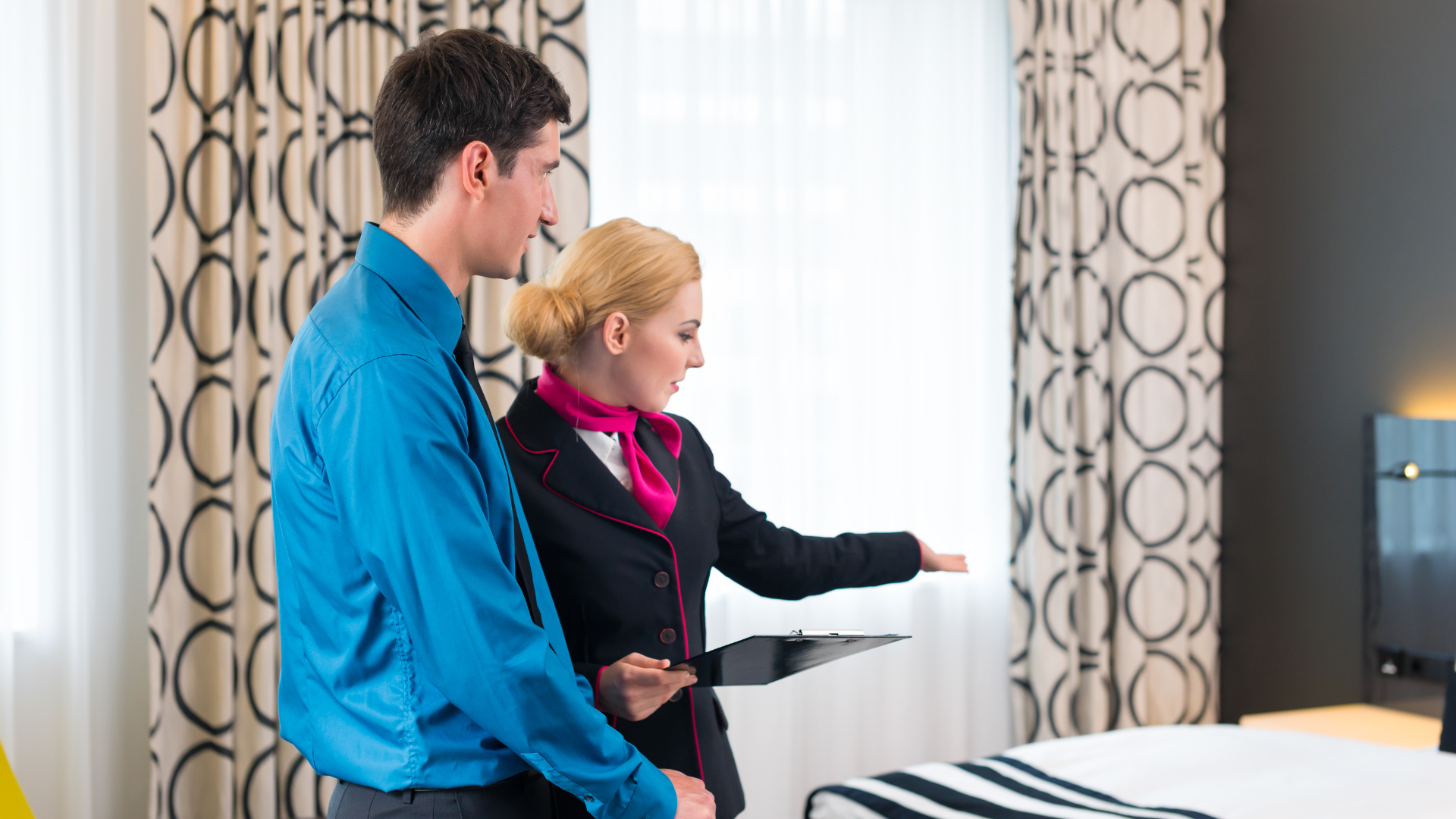
Protocol for Handling Guest Valuables Found by Room Attendants
If a room attendant discovers any guest valuables while performing cleaning duties, they are obligated to report it immediately to the housekeeping office. To ensure the highest level of security, the attendant must stay in the room until the assistant manager, floor supervisor, and security officer arrive. Moreover, the incident must be recorded in the Housekeeping Log Book with clarity and detail. To guarantee maximum safety, the guest room should remain double-locked until the guest's return.
Key Control
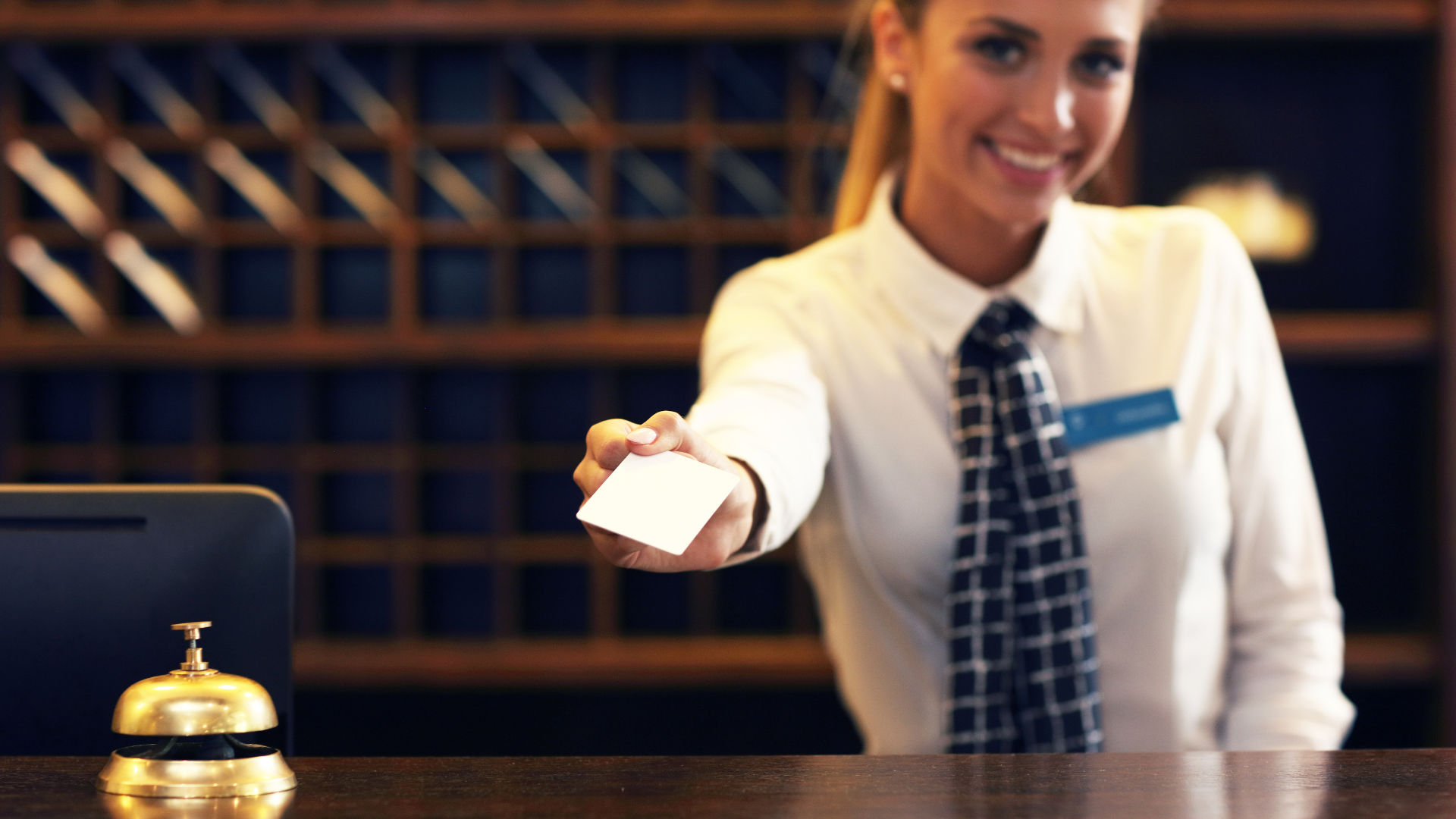
Key Management Protocol for Housekeeping Staff
It is the responsibility of each room attendant to securely maintain all assigned keys. Misplacing or losing a key is a severe issue and must be reported immediately to the executive housekeeper and security officer. In fact, every staff member in the housekeeping department is trained in proper protocol for opening a guest room.
Suspicious Person

Maintaining Hotel Security: Reporting Suspicious Activity
To ensure guest safety, any suspicious individuals loitering in guest floors or public areas should be reported to the housekeeping office by the housekeeping staff. The housekeeping coordinator is responsible for notifying the floor supervisor/assistant housekeeper, assistant manager, and security officer of any such incidents.
Lost and Found
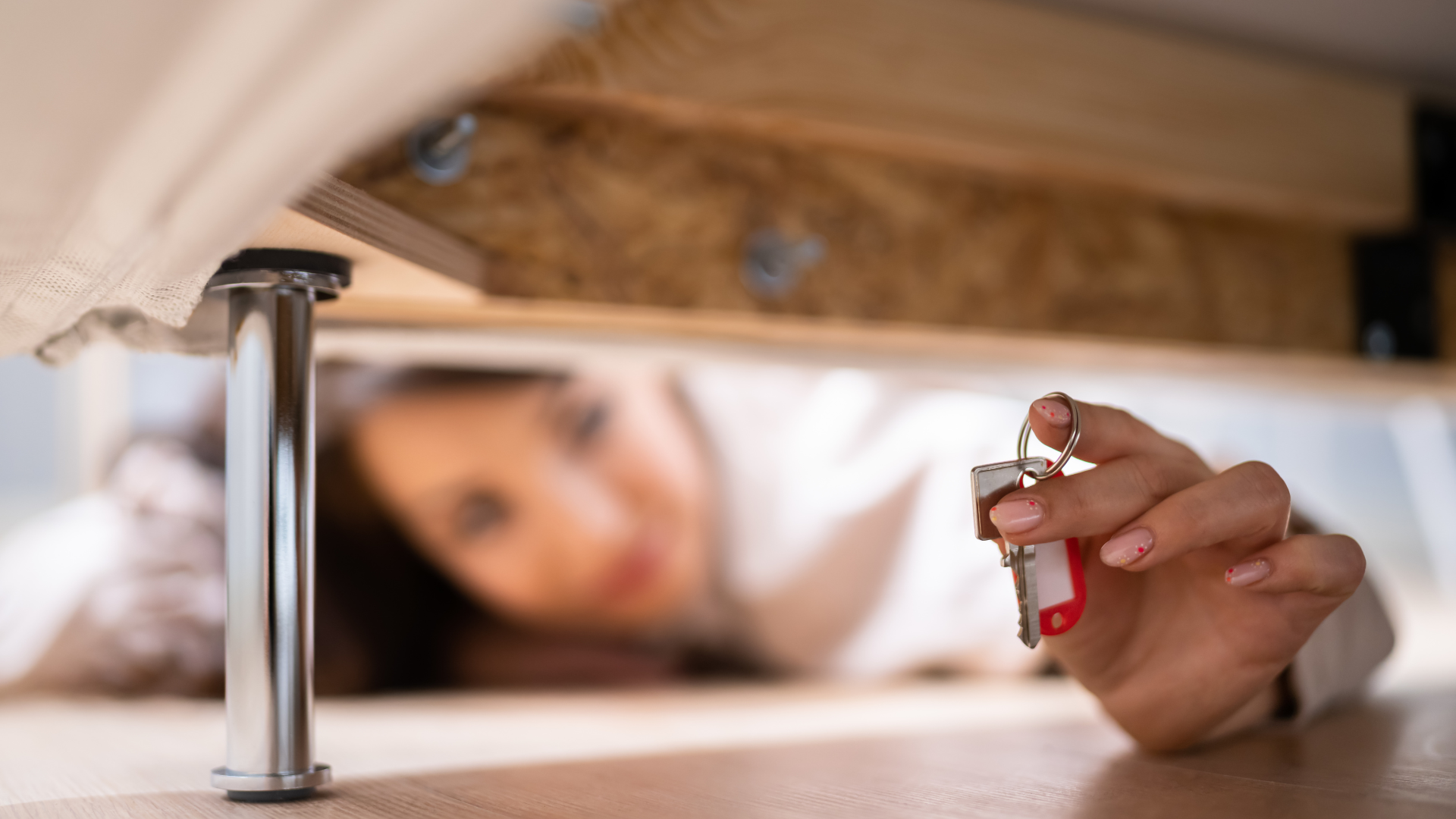
Lost and Found Policy at Hotels
To ensure that lost items are returned to their rightful owners, it is the duty of all staff to hand in any items found within the hotel premises. Usually, the housekeeping or security department is assigned this responsibility. All pertinent information is recorded in the Lost and Found Logbook for easy reference and swift retrieval.
Next Lesson
In addition to room charges, food and beverage services represent another important source of revenue in the hospitality industry. The food and beverage department of a hotel comprises multiple units and a large number of staff who are responsible for meeting the needs of customers both on and off the premises.






